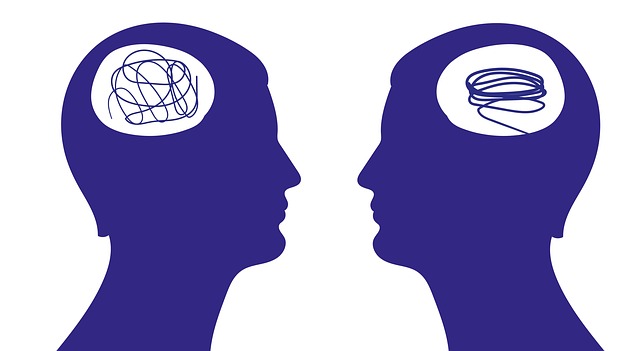
Summary
This article reviews the key advancements in geriatric psychiatry during January 2025, focusing on technological advancements, new drug approvals, and the growing emphasis on holistic care. It explores the potential of these advancements to revolutionize geriatric mental healthcare, while also acknowledging the ethical considerations and challenges that need to be addressed. The article serves as an insightful overview of the evolving landscape of geriatric psychiatry, offering hope for improved mental well-being in older adults.
** Main Story**
Okay, so January 2025 – it was a pretty big month for geriatric psychiatry, wasn’t it? We saw some seriously cool stuff happening with technology, new drugs getting the green light, and a real push for treating older adults as whole people, not just a collection of symptoms. These advancements? They could totally change the game when it comes to mental healthcare for seniors.
Tech to the Rescue: How Gadgets are Changing Care
Think about it, how cool are those wearable health devices now? Smartwatches and fitness trackers aren’t just for counting steps anymore. They’re tracking vital signs, activity levels, even sleep patterns, all day long. That constant stream of data? It’s like having a doctor on your wrist, ready to catch potential problems early on. Which can obviously be really helpful to get ahead of issues.
Telehealth has also been a total game-changer. I remember my grandma struggling to get to appointments – it was a nightmare. Now, imagine older adults getting medical advice, therapy, and managing their meds from home. No more travel headaches, less risk of catching something nasty, and a whole lot more control over their own health. It’s a win-win, right?
And it doesn’t stop there. Smart home tech is stepping up too. Voice assistants, smart lighting, security systems – they’re making seniors’ lives safer, more comfortable, and more independent. Remote monitoring systems? They’re keeping caregivers and healthcare providers in the loop, making sure everyone knows what’s going on. It’s like having an extra set of eyes and ears, which can be so reassuring. Then there’s VR and AR. Who’d have thought we’d be using virtual reality for therapy and cognitive training for seniors? It’s about more than just games; it’s about keeping minds sharp and connecting people in new ways.
New Drugs, New Hope, and a Few Bumps in the Road
But it wasn’t just about tech. We also saw some major movement in the pharmaceutical world that month. The FDA approved esketamine as a standalone treatment for treatment-resistant depression. That’s a HUGE deal. It offers a real ray of hope for those who haven’t had luck with traditional antidepressants. It’s fast-acting, too, so it can really make a difference, quickly, in people’s lives.
Plus, the Phase 2 results for LB-102 in schizophrenia were promising, suggesting a potential breakthrough. We all know how complex and challenging this disorder can be, so new options are always welcome. Sure, there were some setbacks with other drugs like iclepertin and navacaprant. It’s not always smooth sailing. But the continued research and development in this field? It keeps hope alive for better treatments down the road. I mean, it has to, right?
More Than Medicine: The Power of Holistic Care
January 2025 really put the spotlight on holistic care. Which, to be honest, is about damn time! It’s about recognizing that our physical, mental, and social well-being are all intertwined. You can’t just treat symptoms, you’ve got to treat the whole person. Positive psychiatry is getting more attention, too. It’s not just about fixing what’s broken; it’s about fostering well-being and successful aging. Think resilience, wisdom, social engagement – those are the things that keep us going, especially as we get older.
Of Course, There Are Challenges…
Now, all these advancements are fantastic, but we can’t just dive in headfirst without thinking things through. Data privacy is a big one. With all these wearable devices and monitoring systems, we need to be super careful about who’s collecting what information and how they’re using it. On top of that, we have to make sure that everyone has access to these new technologies and treatments. We can’t let existing health disparities get even worse because some people can’t afford a smartwatch or don’t have access to telehealth. It’s not right, is it?
We have to develop guidelines and regulations to make sure we’re using these advancements responsibly and protecting the well-being of older adults. The technology is developing so quickly, it is hard to keep up with what the risks are, and what isn’t a risk, and we all have to keep up.
The Future Looks Bright(ish)
All in all, January 2025 felt like a turning point for geriatric psychiatry. We saw huge leaps in technology, new drug developments, and a renewed focus on holistic care. These advancements can change the way we deliver mental healthcare to older adults for the better. By embracing these changes thoughtfully and responsibly, we can help seniors live healthier, more independent, and more fulfilling lives. At least, that’s the goal, right? As of today, April 25th, 2025, this is where things stand, but things are always changing in this field, so we’ll see what the future holds!


Wearable health devices – doctor on the wrist? Spooky, but intriguing. What happens when the AI doctor starts disagreeing with the *actual* doctor? Asking for a friend… who might be a hypochondriac.
Editor: MedTechNews.Uk
Thank you to our Sponsor Esdebe